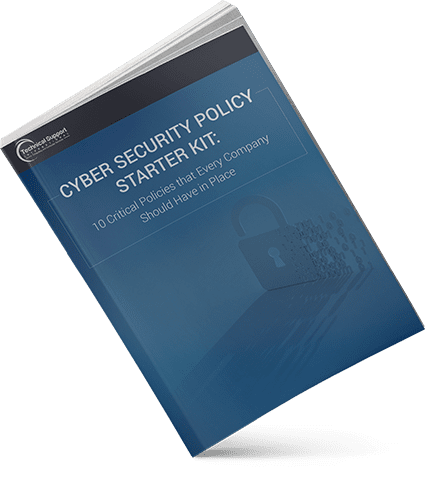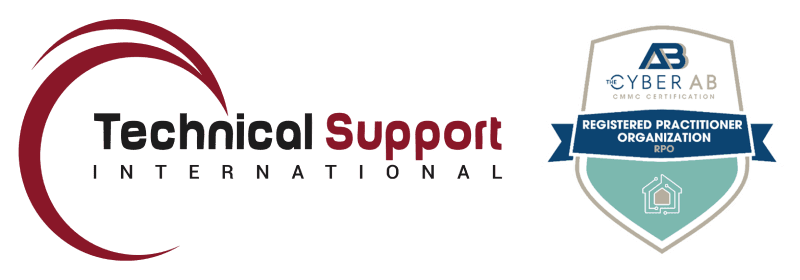Blog

Four Ways vCISOs Help Avoid CMMC Compliance & Security Program Mistakes
If you operate within the U.S. defense industrial base (DIB), you’re likely well aware of the CMMC—and now the CMMC 2.0’s—compliance mandates, including the immediate and long-term impact they will present to your organization.
Despite the challenges and steep costs associated with implementing a CMMC compliant environment, doing business with the Department of Defense (DoD) will require DIB contractors to adhere to this compliance framework, which is nothing short of a revolutionary new approach and paradigm shift to how organizations used to approach cybersecurity.
Needless to say, achieving the Cybersecurity Maturity Model Certification (CMMC) will be no easy task regardless of any organization’s security posture, budget, or availability of IT resources. DIB contractors with access to controlled unclassified information (CUI) will have to comply with a torrent of stringent regulations that significantly increase the need for additional expertise and skillsets to adequately address the CMMC’s requirements. If not approached correctly, the changes can impose considerable burdens on an organization’s already over-extended IT team or 3rd party MSP/MSSP service provider. Unfortunately, most SMBs and their IT support resources lack the collective skills and experience necessary to satisfy CMMC requirements, which is why it is undoubtedly clear that a vCISO is invaluable to any organization’s CMMC success.
The “Obvious” (Enterprise) Solution
Larger organizations faced with mandates like these typically hire an individual or small team of employees dedicated to accomplishing the CMMC requirements and rely upon the expertise and guidance of their existing IT leadership, eg. chief information security officer (CISO) or chief technology officers (CTO). For enterprise companies, finding these highly-specialized security professionals can be a time-consuming process, since these candidates are part of a tiny and sought-after talent pool. Needless to say, the deep pockets of a larger enterprise make it easier for them to attract these candidates, whereas smaller SMBs typically struggle with recruiting and paying the premium associated with these hard-to-find cybersecurity and compliance professionals. Unfortunately, even if you were able to identify a professional with sufficient technical and programmatic compliance expertise, there are several additional critically important skills and traits that are often overlooked that if they’re overlooked, can ultimately lead to an organization’s failure toward successfully implementing a CMMC compliant strategy. By no fault of their own, cybersecurity specialists sometimes lack the knowledge, skills, and experience to comply with not just the technical components, but the newly revised CMMC 2.0’s rigorous security program development and management requirements. Between the lack of cybersecurity professionals and the considerable cost and resources required to implement a successful CMMC strategy, it can be challenging for SMBs to compete against larger enterprise DIB contractors unless they leverage the potential of a true vCISO service offering.
A High-Value Alternative to High Costs and Denial
These heavy human resource requirements present SMB leaders with a pair of unappealing options. They can either:
A. Hand off compliance duties to their IT teams, knowing that they are already spread thin with a full plate of existing responsibilities.
B. Deny the problem, postpone their compliance efforts, and hope that their CMMC problem will disappear.
In either case, company leaders don’t truly address the problem, let alone develop a meaningful solution that will derive a positive outcome. To help attend to these clear strategic compliance gaps and adequately combat the volatility of today’s cyber threat landscape, many MSPs/MSSPs now offer a critically important CMMC compliance solution in the form of the virtual chief information officer (vCISO) service to help SMBs develop, maintain, and manage effective cybersecurity operations within and beyond the scope of the CMMC.
Despite a considerable amount of the CMMC 3’s security program requirements being re-structured, it is clear that there is still a need for high level expertise and resources to effectively manage and maintain a successful compliance security program. As a result, your compliance strategy and maturity level, require careful planning with the help of vCISO-level capabilities and expertise. Although a compliance assessment is a great start toward implementing a solid CMMC security program, in order to satisfy the program’s long-term requirements, you’ll also have to look beyond the assessment and consider the ongoing set up, monitoring, and continuous updating of all the components of security program, which include but are not limited to:
- Creating a realistic and time-bound long-term program strategy.
- Formalizing the strategy with relevant security documentation and processes.
- Implementing and enforcing program processes.
- Managing program processes to make them repeatable and ensure that program practices are standardized.
Although the vCISO approach requires outsourcing your data protection strategy, which can understandably be a cause of concern, consider the burdens these tasks may have on your current IT resources- let alone the consequence of non-compliance-before dismissing this option.
Avoiding Costly Technical and Management Mistakes
Most descriptions of the vCISO role cite reduced operations costs (salary costs, mainly) as its most powerful benefit. As of October 29, 2021, Salary.com posted a nationwide CISO pay range of $172,023 to $294,198, with a median salary of $227,009. A company pays for vCISO skills and experience only when they are needed, and in this case, for CMMC guidance that requires a considerable amount of time over a long-term basis. However, by incorporating a vCISO for CMMC program duties on an as-needed basis, companies can pay for high-level skills and experience at a fraction of a full time CISO’s salary. Although hefty cost savings garner most of the attention, if you consider the vCISO’s ability to maintain a smoothly running security program, you’ll quickly notice there are more meaningful benefits beyond labor cost savings. These benefits are measurable and provide invaluable oversight that can ensure a successful CMMC implementation and favorable auditing outcome. vCISOs help to take the mystery and complexity out of the CMMC implementation process and help clients avoid high-cost mistakes. Here are four of the most frequent costly missteps they can help your organization avoid.
1. Denial and Procrastination
Denial—the reluctance to recognize the need to adopt a successful compliance methodology is part of human nature. However, in the world of DIB contracting, denial and its kid brother, procrastination, can be expensive and cost your organization serious opportunities to maintain market competitiveness, and in turn, lose business (opportunity costs). CMMC compliance involves vast technical and management tasks, so many that it takes an experienced, versatile professional to not only accomplish them in a timely fashion that meets your contractual obligations. It is our experience that a CMMC implementation can take anywhere from 3-18 months depending on an organization’s compliance posture, which will need to be coordinated with a certified C3PAO’s availability to conduct the CMMC certification audit itself. Considering all these moving parts and the stakes involved, you must include a vCISO to ensure your compliance objectives are met within the timeframes of all involved parties.
2. Incomplete Asset Inventories
You cannot protect assets that you don’t know you have. Identifying data-bearing assets throughout your organization is a more complex, time-consuming problem than many business leaders realize. Securing data requires creating and maintaining an up-to-date inventory of every device, service, and user account throughout an organization’s IT infrastructure. vCISOs have experience identifying, tracking, and documenting these assets so the appropriate measures can be taken to address the technical components of a CMMC implementation and clarify what areas of your environment fall under scope.
3. Limiting your compliance goals to passing the CMMC audit.
Leveraging the expertise of a vCISO during the CMMC audit process helps to reduce the risk of failing an audit and losing out on existing and future DoD contract opportunities. Passing the CMMC process is not a straightforward, one-and-done type of endeavor, but consists of three major components:
- Defining, developing, and maintaining technical controls.
- Building and supporting policies and documentation to prove ongoing compliance.
- Managing process maturity data.
You’ll discover that as the components of your security program develop, the ongoing process of maintaining it becomes more complex and requires a revolutionary new approach to managing cybersecurity. Overcoming this new paradigm is a large part of the value that vCISOs offer, in addition to the required services to help organizations address these considerable changes.
4. Focusing Only On The Technical Components
CMMC compliance requires more than following technical requirements. Developing and maintaining an ongoing cybersecurity program is arguably the most crucial component of a successful CMMC strategy, which is why it’s essential to have a dedicated security professional who can:
- Monitor and develop ongoing changes in program requirements.
- Implement and enforce changes in current program requirements.
- Keep contractor company leaders informed on the status and posture of their CMMC compliance and data security.
These non-technical functions not only require compliance experience to successfully manage your security program but also require skills and experience such as:
- Management, collaboration, and communication skills.
- IS management and classification.
- A clear understanding of what the C3PAO auditor is looking for.
- Ten or more years of IT and cybersecurity experience.
- Industry-recognized certifications.
- Experience with new technologies and security practices such as multi-factor authentication, AI, and advanced data analytics to monitor system, user, and intruder behavior patterns.
Rather than finding the ideal candidate that possesses these skills and level of expertise, it may be in the interest of time, budgetary constraints, and efficiency to consider the vCISO service model to achieve CMMC compliance.
Concluding Remarks: vCISO Value Scorecard
So, how does the vCISO value equation add up?
- Labor cost savings. By hiring a VCISO on a consulting basis, you reduce labor costs and avoid paying non-labor compensation costs. Hiring vCISOs present an opportunity to unleash the benefits of a full-time CISO at a fraction of the cost while providing significant labor cost savings by simplifying and demystifying the CMMC program process from beginning to end.
- Avoiding compliance-related opportunity costs. Companies that fail the CMMC audit cannot apply for DoD contracts for at least the time required to reapply for and pass the audit. However, there are many concessions provided by the newly revised CMMC 2.0 that may provide some leeway depending on the type of CUI an organization possesses and its contractual obligations.
- Lower risk of cyberattacks and data breaches. Most of the CMMC’s required cybersecurity solutions help combat today’s most common cyber threats and should be adopted throughout the business community regardless of their compliance requirements. Organizations failing to do so incur the risk of cyberattacks, data breaches, and misuse of sensitive company and client data. Research shows that a considerable number of companies that experience a serious breach go out of business within six months, and considering the negative impact of those incidents, the loss of revenue, lower employee productivity, and shockingly high costs to reactively recover, organizations are encouraged to continuously work toward improving any gaps to their security and compliance postures.
Maximize efficiency to reduce operations costs. vCISOs are aware of the latest security solutions and how they can reduce the time, effort, and other resources needed to run a mature, professional security program. vCISOs allow organizations to leverage the benefits of a full-time CISO at a fraction of the cost and help smaller organizations confidently accomplish their CMMC compliance and cybersecurity objectives.
Get in Touch with TSI
For more information on vCISO service model or if there’s anything we can help address, please give us a call at 508-543-6979 or send us a message here to get started.
Categories
- Backup & Disaster Recovery
- Business Operations
- Case Studies
- Cloud Services
- Cyber Security
- Employee Spotlight
- Finance & Budgeting
- Glossary Term
- Governance & IT Compliance
- Managed Services
- Mobile Device Management
- Network Infrastructure
- NIST 800-171 & CMMC 2.0
- PCI
- Podcast
- Project Management
- TSI
- Uncategorized
- vCIO
Cyber Security Policy Starter Kit:
10 Critical Policies That Every Company Should Have in Place


